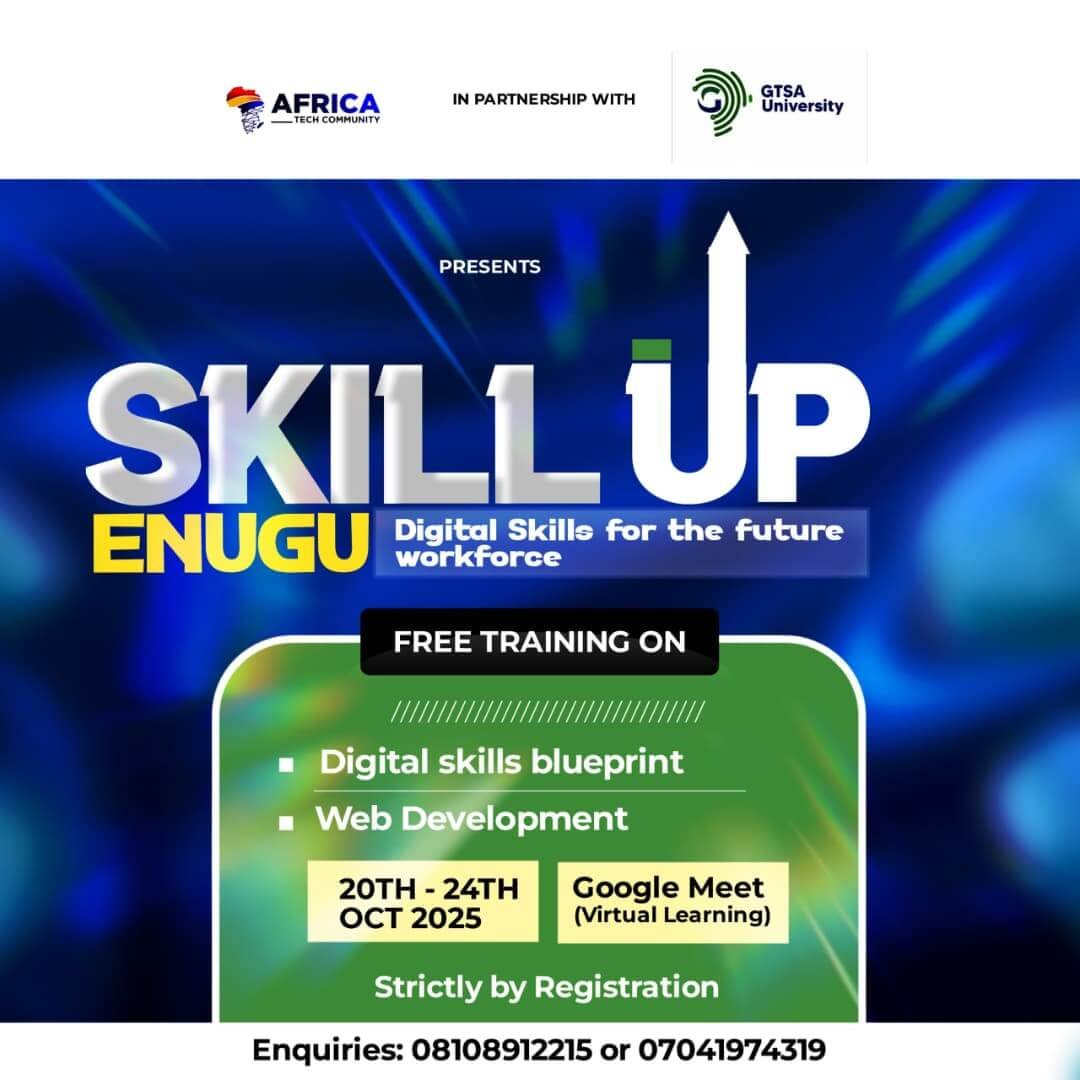
Breaking into tech without a university degree is not only possible, it’s common.
Thank you for reading this post, don't forget to subscribe!In 2025, we’ve seen companies around the world increasingly hire for skills, not certificates.
The demand for tech professionals is set to surge in 2025 and beyond.
According to projections by the US Bureau of Statistics, computer and information technology roles will experience growth far exceeding the average across all industries between 2024 and 2034.
Each year, an estimated 317,700 new openings will emerge driven by both new job creation and the replacement of workers exiting the field.
With a median annual salary of $105,990 as of May 2024, more than double the overall occupational median of $49,500, the tech sector continues to offer some of the most rewarding and secure career opportunities in today’s evolving job market.
If you’re wondering how to start a tech career without a degree, this guide walks you through practical steps.
You’d learn realistic roles to target, how to build a portfolio and land your first role, all in clear, conversational language.
Can you really start a tech career without a degree?
Here’s the thing: yes, you can. Employers are hiring talent from bootcamps, self-study routes and hands-on experience.
There are plenty of tech jobs with no degree required, especially at entry level.
The shift toward competency-based hiring means your ability to solve problems, write code, analyse data or manage systems often matters more than a diploma.
That said; success doesn’t happen by accident.
Treat this as a job: plan a path, practice regularly, and prove your skills with projects.
If you want to know how to get into IT without college, keep reading.
The steps below will show you exactly what to do.
Best tech roles you can get without a degree

Not every tech role requires a degree.
Here are reliable entry point roles employers commonly hire into with practical experience and certs:
Web developer / Frontend developer
Build websites and user interfaces. Start with HTML, CSS and JavaScript; create small projects and publish them.
IT support / Helpdesk technician
A great first step, employers value problem-solving, communication and basic networking knowledge.
Data Analyst
Entry-level data roles often value Excel, SQL and visualisation skills. You can find entry level tech jobs without a degree in small firms and start-ups.
UX/UI designer
If you’re creative, learn design basics, user research and prototyping tools. Portfolios speak louder than degrees.
Digital marketing / SEO specialist
Technical and creative skills you can learn from short courses and by running campaigns for local clients.
Junior cybersecurity or cloud support roles
With foundational certs and practical labs, you can start in junior positions and grow.
How to build in-demand tech skills without university

So, how do you actually learn these skills? Below are proven, cost-effective ways.
1. Online tech bootcamps and courses
Intensive online tech bootcamps (part-time or full-time) fast-track you into practical work. Choose bootcamps that include career support and portfolio projects.
2. Free and paid learning platforms
Platforms like freeCodeCamp, Coursera and edX let you learn coding without university. Use them to build core skills and follow structured learning paths.
3. Earn the right certifications
Certifications can boost credibility. Look into best tech certifications for your path e.g., Google IT Support, AWS Cloud Practitioner, CompTIA A+, or platform-specific certs for data and cloud roles.
4. Practice with real projects
Theory is fine, but hands-on work wins interviews. Build small apps, dashboards or websites. Put them on GitHub or a simple portfolio site.
5. Continuous digital skills training for beginners
Keep learning: take short courses in version control (Git), basic SQL, Excel for data and one visualisation tool (Power BI or Tableau). Regular digital skills training for beginners helps you move from novice to hireable.
How to gain experience and become a self-taught tech professional
Experience is your proof. Here are practical ways to become a self-taught tech professional;
Open-source contribution
Start with small issues on GitHub. Document your commits and learning.
Freelance and micro-gigs
Do small client jobs on Fiverr or Upwork to build real world examples.
Volunteer
Offer tech help to NGOs or community groups. This is great for CVs and references.
Create a portfolio

Show each project with a short case study: problem, approach, tools, and outcome.
Pair programming and mentorship
Join coding communities, find a mentor, and learn through collaboration.
Don’t under-estimate the value of being able to explain your work clearly. Recruiters want people who can solve problems and communicate results.
How to land your first tech job without a degree
Right, you’ve got skills and a portfolio. Now what?
- Craft a skills-focused CV and online presence
Lead with achievements: list projects, tools and measurable outcomes. Use GitHub, LinkedIn and a portfolio site to show evidence.
- Network where employers are active
Join relevant communities on Discord, Slack and LinkedIn. Attend meetups or virtual events. Often, referrals lead to entry level tech jobs without a degree.
- Tailor every application
Match your CV and cover note to the job description. Highlight how your project experience maps to the role.
- Prepare for technical interviews
Practice coding problems (HackerRank, LeetCode) and system scenarios. For non-coding roles, prepare case studies and sample reports.
- Consider apprenticeships and traineeships
Many companies hire through apprenticeship schemes and trainee programmes a solid way to get paid experience while learning on the job.
If you’re making a career change into tech, frame your previous experience as transferable skills: problem solving, stakeholder communication, project work, these matter.
Tips to succeed and grow once you’re hired
Okay, you’ve landed a role. Now grow!
- Keep learning:
Tech evolves fast. Regularly update skills and pursue role-specific certs.
- Find a mentor:
Someone experienced accelerates growth and helps navigate career choices.
- Document wins:
Track KPIs, completed projects and business impact. This builds your case for promotion.
- Explore specialisation:
After a year or two, pick a niche (data engineering, ML, cloud) to increase market value.
- Consider freelance or contract work: It broadens experience and boosts income.
Final thoughts
How to Start a Tech Career Without a Degree (2025 Global Guide).
It’s doable, realistic and increasingly common.
Start by choosing a role, learn with purpose (online tech bootcamps, free platforms), gain real experience as a self-taught tech professional, and show your work in a portfolio.
Use certifications wisely; pick the best tech certifications for your path, and treat every small project as proof of ability.
Bottom line: employers care about what you can do. If you follow the steps in this guide, you’d have mastered how to Start a Tech Career Without Degree (2025 Global Guide).
And remember, many have done it before you; you can too.
Ready to Level Up?
NaysBlog is powered by GWC Tech Hub LLC, a software and AI agency based in Nigeria and the UK.
At GWC Tech Hub, we don’t just talk about innovation, we build it. Our mission is to help professionals and aspiring tech talent access practical insights, tools, and training that power real career growth.
Explore more expert guides, tutorials, and industry updates on NaysBlog, your trusted tech and career growth companion.
FAQs: How to Start a Tech Career Without Degree (2025 Global Guide)
- What are the easiest tech jobs to get without a degree?
Start with IT support, junior web development, or digital marketing roles.
- How long does it take to start a tech career with no experience?
Typically 3–12 months with focused learning and projects, depending on the role.
- Do online certifications really help you get hired in tech?
Yes, when paired with projects that demonstrate real skills.
- Can self-taught developers earn senior salaries?
Absolutely, many self-taught professionals reach senior levels through experience, specialisation and proven impact.







